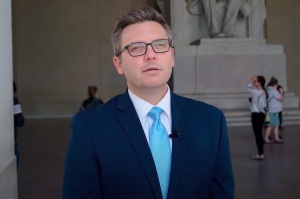Critics: Obama's Recess Appointments Are an Abuse of Power
Critics accused Barack Obama on Thursday of abusing his position as president by circumventing the Senate to appoint new Consumer Financial Protection Bureau head Richard Cordray and three others.
Obama appointed the four agency officials to the CFPB and National Labor Relations Board on Wednesday despite the fact that the U.S. Senate blocked Cordray’s nomination and had not interviewed two of the other three appointees. The administration approved the officials through “recess” appointments – appointments only made while the Senate, the congressional body mandated by the U.S. Constitution to confirm the most senior federal officials, are away on recess or leave.
Obama explained his decision saying, “I’m not going to stand by while a minority in the Senate put party ideology ahead of the people we’re elected to serve.”
Recess appointments are a common occurrence that is authorized by Article 2, Section 2 of the Constitution. President George W. Bush reportedly made 171 recess appointments during his two terms in office. So far, Obama has made 28.
However, Senate Republicans and conservative critics stated that the Senate was actually still in session at the time of the appointments.
A small group of senators were holding “pro forma” sessions in which the Senate floor was kept formally opened up for business while remaining devoid of activity. The pro forma sessions, created by Democrats during the W. Bush administration, are held to keep the president from appointing officials without Senate confirmation.
Edwin Meese, a former U.S. attorney general for the Ronald Reagan Administration, condemned the actions in a Thursday Washington Post op-ed as an abuse of his presidential power.
“President Obama’s attempt to unilaterally appoint three people to seats on the National Labor Relations Board and Richard Cordray to head the new Consumer Financial Protection Bureau after the Senate blocked action on his nomination is more than an unconstitutional attempt to circumvent the Senate’s advise-and-consent role. It is a breathtaking violation of the separation of powers and the duty of comity that the executive owes to Congress,” Meese wrote.
Senate Minority Leader Mitch McConnell (R-Ky.) lamented that the Senate had not held hearings for two of the NLRB nominees.
“Because the president waited to nominate Sharon Block and Richard Griffin until just two days before the Senate was scheduled to adjourn last month, neither has undergone a single confirmation hearing or a single day of debate by the representatives of the American people,” he said.
McConnell continued, “Congress has a constitutional duty to examine presidential nominees, a responsibility that serves as a check on executive power. But what the president did today sets a terrible precedent that could allow any future president to completely cut the Senate out of the confirmation process, appointing his nominees immediately after sending their names up to Congress. This was surely not what the framers had in mind when they required the president to seek the advice and consent of the Senate in making appointments.”
White House Press Secretary Jay Carney said Senate Republicans forced their hand because of numerous appointment delays.
“President Obama currently has a total of 181 nominees pending before the Senate. Those nominees have been pending before the Senate for an average of 165 days,” said Carney.
Former President Bush refrained from making recess appointments when Democrats held pro forma sessions in 2007 to block Steven Bradbury from being appointed as assistant attorney general for the Justice Department’s Office of Legal Counsel. President Obama ignored the loophole tactic, essentially calling the Senate’s bluff.
Senate Majority Leader Harry Reid (D-Nev.) led the 2007 pro forma appointment, but released a statement supporting Obama's actions.
Republican presidential candidates addressed Obama’s actions Thursday while on the campaign trail.
Former Pennsylvania Rick Santorum questioned, “What are rules to President Obama?”
Former Massachusetts Gov. Mitt Romney told voters, “You just saw yesterday the president appoint people to the National Labor Relations Board without the confirmation of the Senate as a political payback to his friends.”




























